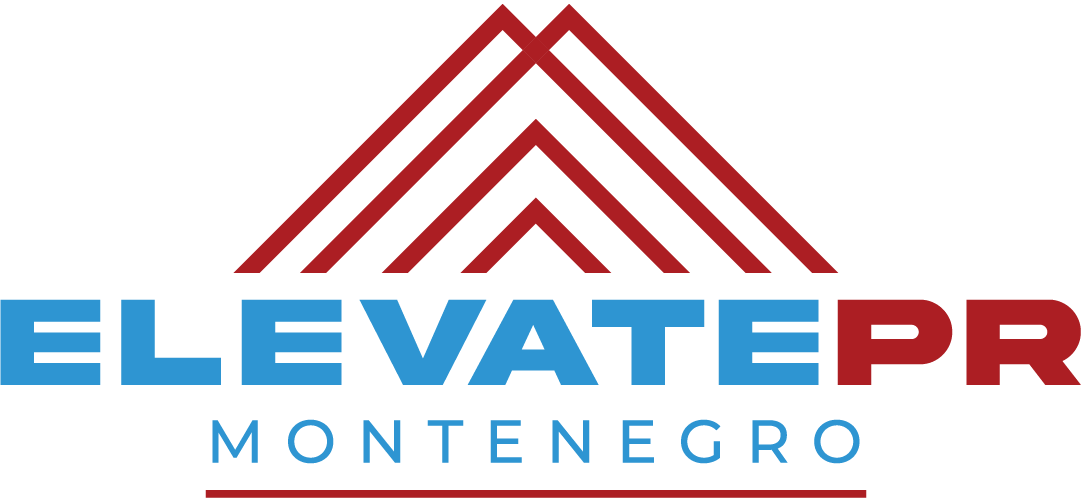Montenegro’s strategic location along the Adriatic Sea, coupled with its emerging status as a business hub and favorable tax regime, positions it as an ideal gateway for international trade and re-export activities. The country’s tax policies are specifically designed to facilitate the import, processing, and re-export of goods, attracting foreign businesses seeking cost-effective access to European and international markets. This article explores Montenegro’s tax structure and benefits for imported goods aimed at foreign markets, focusing on customs and VAT regimes, free trade zones, and additional incentives for international trade.
1. Overview of Montenegro’s tax regime for imported goods
Montenegro’s tax system is tailored to support businesses engaged in import, export and re-export activities, featuring various incentives and exemptions for goods imported for re-export purposes.
1.1 Customs duties and import taxes
- Standard customs duties: Customs duties are applied based on the Harmonized System (HS) classification, with rates varying by product type and origin. Montenegro’s tariff schedule aligns closely with EU standards, simplifying compliance for businesses familiar with EU regulations.
- Preferential customs rates: Free trade agreements with entities such as the EU, EFTA, and CEFTA allow for preferential customs rates or duty-free imports on certain goods from these regions.
- Exemptions for transit goods: Goods imported for transit or re-export purposes are typically exempt from customs duties, making Montenegro an attractive location for international trade and logistics.
1.2 Value Added Tax (VAT) on imported goods
- Standard VAT Rate: The VAT rate in Montenegro is 21%, applicable to most imported goods. However, VAT on imported goods intended for re-export can often be waived or deferred under specific conditions.
- Zero VAT rate for exports and re-exports: Exports and re-exports are subject to a 0% VAT rate, allowing businesses to import goods, enhance their value and re-export them without incurring VAT liabilities.
- VAT Deferment and exemption: Companies importing goods for re-export or for use in production within free trade zones may benefit from VAT deferment or exemptions, alleviating the upfront VAT burden.
1.3 Customs warehouse regime
Montenegro’s customs warehouse system allows businesses to store imported goods without incurring customs duties or VAT until the goods are released for consumption or re-export:
- Tax-free storage: Goods in customs warehouses are exempt from duties and VAT until they leave for final use or re-export, beneficial for companies managing bulk inventories.
- Repackaging and processing: Items stored in customs warehouses can be repackaged or minimally processed prior to re-export without incurring additional taxes.
2. Free trade zones and special economic zones
Montenegro has established several free trade zones (FTZs) and special economic zones (SEZs) to foster international trade and attract foreign investment, offering numerous tax incentives.
2.1 Free trade uones (FTZs)
Businesses within Montenegro’s FTZs enjoy various tax advantages, making these zones ideal for import-export and re-export activities:
- Tax exemptions: Goods imported into an FTZ are exempt from customs duties and VAT while remaining within the zone, benefiting those re-exporting or using goods in manufacturing.
- Zero duties on re-exports: Items processed and re-exported from FTZs are not subject to customs duties or VAT, making these zones advantageous for value-added operations.
- Simplified customs procedures: FTZs streamline customs processes, reducing administrative burdens and accelerating import clearance.
2.2 Special Economic Zones (SEZs)
SEZs in Montenegro offer additional incentives for businesses in sectors like manufacturing and logistics:
- Tax incentives: Companies in SEZs can benefit from lower corporate income tax rates, property tax exemptions, and other incentives based on their activities.
- Duty-free imports for manufacturing: SEZs allow for the duty-free import of raw materials and machinery, with tax benefits applying based on the final destination of the goods.
3. Import and export procedures for targeting foreign markets
3.1 Customs procedures and documentation
Montenegro’s customs procedures facilitate trade while ensuring compliance with national and international regulations:
- Import declarations: Businesses must submit import declarations alongside documents like commercial invoices and certificates of origin to the Montenegrin Customs Administration.
- Customs classification and valuation: Goods must be classified by HS code, with duties calculated based on the customs value, which includes cost, insurance and freight (CIF).
- Export declarations: For re-exporting goods, businesses must file an export declaration and provide documentation confirming the goods are leaving Montenegro’s customs territory.
3.2 Licensing and regulatory compliance
Certain goods may require additional permits depending on their classification and intended use. Businesses involved in importing regulated items like chemicals or pharmaceuticals must ensure compliance with relevant regulations.
3.3 Certificates of origin and preferential trade agreements
Montenegro’s participation in various trade agreements allows for reduced or zero customs duties on goods:
- Certificates of origin: Businesses exporting to countries with which Montenegro has agreements can use these certificates to qualify for preferential tariffs.
- Rules of origin compliance: Companies must ensure their goods meet rules of origin criteria to benefit from tariff reductions.
4. Strategic considerations for re-export operations in Montenegro
4.1 Leveraging free trade zones for cost efficiency
Businesses should consider utilizing FTZs to optimize re-export operations, allowing for importing goods, adding value, and re-exporting without incurring customs duties or VAT.
4.2 Optimizing supply chain management
Montenegro’s customs warehouse regime and VAT deferment options enable businesses to streamline their supply chains, mitigating the financial impact of upfront tax and duty payments.
4.3 Establishing local partnerships
Collaborating with local firms experienced in Montenegro’s customs and tax regulations can enhance operational efficiency and ensure compliance, particularly for those unfamiliar with the local market.
5. Conclusion
Montenegro’s favorable tax and customs regime, alongside its strategic location and free trade zones, makes it an ideal hub for businesses looking to import and re-export goods. With zero VAT on exports, exemptions from customs duties, and streamlined customs procedures, companies can achieve significant cost savings and operational efficiencies.
As Montenegro continues to align its policies with European Union standards and enhance its infrastructure, it is poised to become a key player in global trade, serving as a gateway for businesses targeting European and international markets. By capitalizing on the country’s tax incentives and strategic advantages, companies can establish a strong foothold in Montenegro and optimize their import-export operations.
Elevated by


